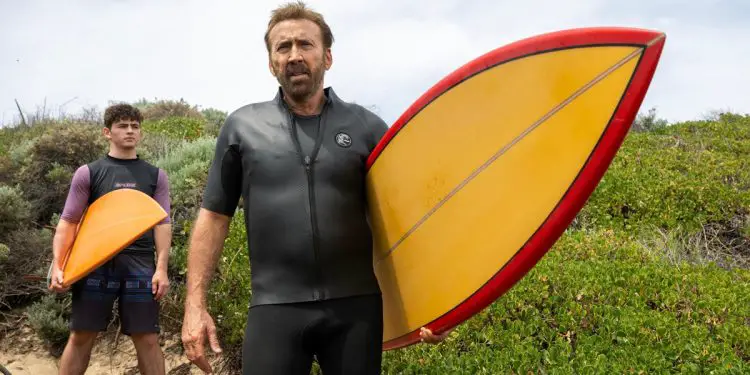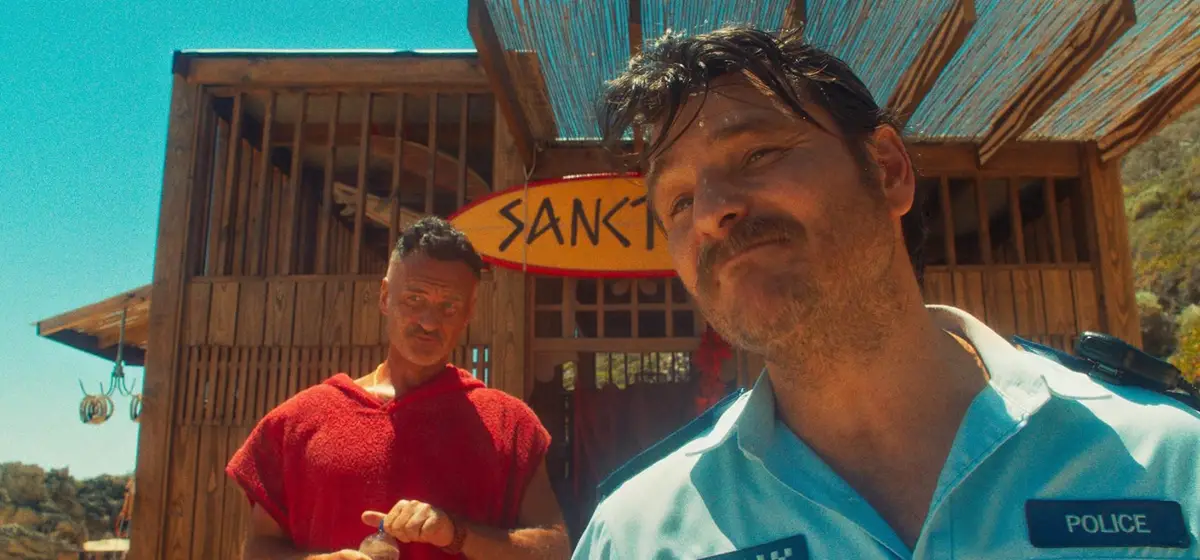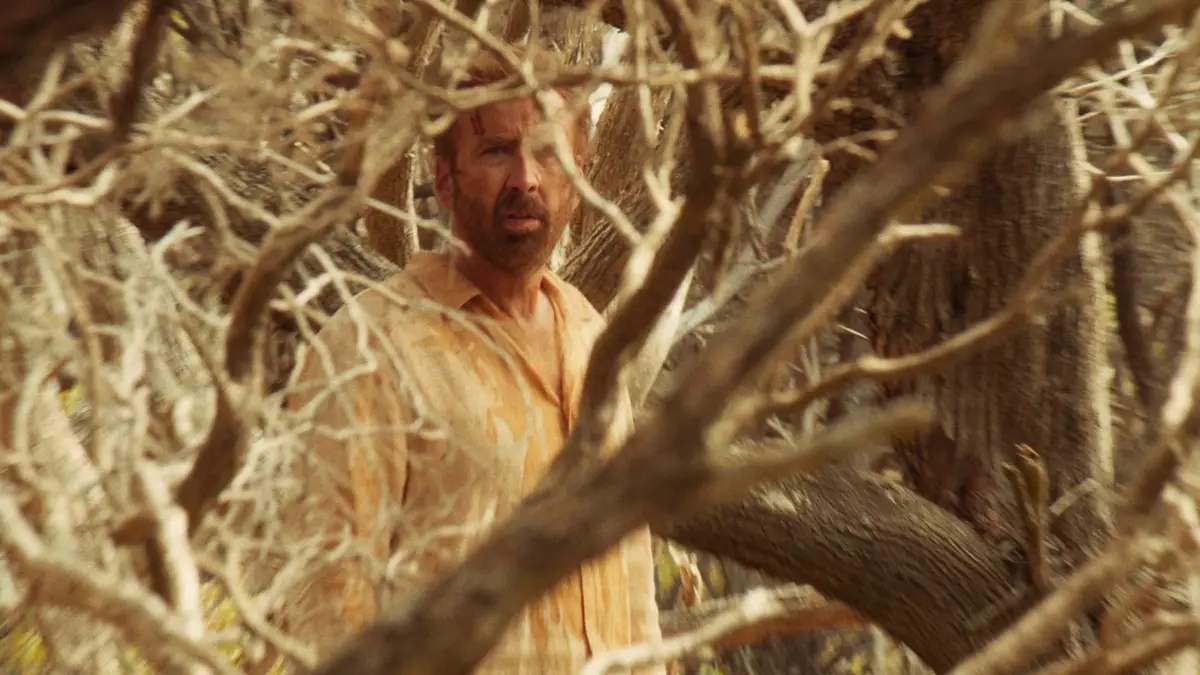The Surfer (2024) – Film Review

Director: Lorcan Finnegan
Cast: Nicolas Cage, Finn Little, Rahel Romahn
Certificate: 15
By David Reid
The Surfer opens as the lead character, played by Nicolas Cage, takes his teenage son, played by Finn Little (previously known for Yellowstone), on a trip to an idyllic Australian beach. The father seeks to convey the importance of this moment in their relationship to his seemingly disinterested son, along with the significance of this beach to him personally. He himself used to surf here in his youth. His grandfather once lived in a beachfront property overlooking the bay. Attempting to articulate the existential meaning of the journey, the Surfer reveals that he is in the final stages of negotiating the purchase of his grandfather’s former home. From his car, clothes, manner, and conversation with his boss, we are led to believe that this is someone with a degree of wealth and social standing.
Problems arise as soon as the pair arrive at their destination. A group of local surfers – known as the Bay Boys – make it clear that the visitors are not welcome. In their view, no one from outside the immediate area has the right to enjoy what is, in fact, a public beach. Clearly, this presents difficulties for the Surfer – not just for his plans for the day, but potentially as a barrier to becoming a resident in the near future.
The beach and its adjoining car park serve as the setting – effectively a stage – for events to unfold over the film’s one hour and forty-minute runtime. The absence of personal names for the lead and his son may be a device to show that, rather than witnessing a specific personal story, we are observing an allegorical tale in the style of a fable. It encourages us to view the film not as mere entertainment but as something with a deeper resonance than we might have anticipated at the outset.
“Dilemmas faced by men”
Nicolas Cage, with a body of work spanning over 120 films to date, has established himself as an iconic actor – one renowned for immersing himself in his roles, for taking characters in unexpected directions, or – as in The Family Man and Adaptation – for portraying the same character in different contexts or playing dual roles. His varied film personas were celebrated – or parodied, depending on your point of view – in The Unbearable Weight of Massive Talent, in which he plays a fictionalised version of himself, as well as a younger figment of his own imagination. His performances are notoriously unpredictable, and this is especially true when, as in this case and his recent horror success Longlegs, he also serves as producer and plays the lead. My personal guilty pleasure is Honeymoon in Vegas, in which he is unfazed by parachuting Elvis impersonators. In contrast, his quietly introspective role as a problem drinker earned him a well-deserved Oscar for Leaving Las Vegas in the mid-1990s.
This film also shares thematic similarities with his 2021 feature Pig, in which he portrays a humble character drawn into unexpected circumstances, where he must make a moral choice. In The Surfer, the action centres on the lead’s response to the events he encounters on the beach. There is a sense that his entire life has led to this moment, and his future may hinge on his reaction. The naturalism of Cage’s performance puts us in his shoes as he confronts antisocial behaviour, explores themes of toxic masculinity, and navigates dilemmas faced by men in contemporary Western society. Will the Surfer compromise? Walk away? Surf with his son? Settle old scores? Come to terms with his past? Fulfil his long-held dream of returning to the bay? Return to his previous life? What would we do in his place? In a strong performance, Julian McMahon (FBI: Most Wanted) plays the charismatic leader of the group.
“Concerned with morality”
This film is an Australian-Irish co-production. Dublin-born director Lorcan Finnegan creates a hellish environment for his lead character in a strikingly beautiful setting. Thomas Martin’s writing immerses us in the challenges presented – not least within the natural world, where human and animal life coexist. There is more than a nod to the B-movie genre, as well as an intentional omission of some character names. For example, cinematographer Radek Ladczuk employs a fisheye lens at times to give certain characters a more grotesque appearance. Notably, BAFTA winner Tony Cranstoun’s editing uses flashbacks effectively to deepen our understanding of key past events in the lead character’s life. Some scenes feature exaggerated character reactions in a style reminiscent of a spaghetti western. There is violence, though the film is less gory than one might expect. This is a film more concerned with morality than spectacle. The action is heightened by an evocative soundtrack.
Ultimately the viewer’s enjoyment may hinge on their reception of Nicolas Cage’s performance. Here – as is usually the case – his commitment is beyond question. The greater question is whether that commitment translates into entertainment in the eyes of the beholder. Whatever your conclusion, in this dramatic, vivid movie, cast and crew have combined to create a work that lingers long after the last of the surfing gear has been stowed away.












